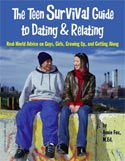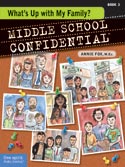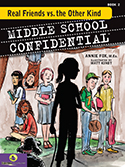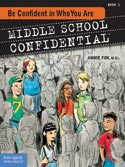October 2005
Clean Anger vs. the Other Kind
by Annie Fox, M.Ed

In the aftermath of Hurricane Katrina I became a news junkie. Through the non-stop coverage of floodwaters, people stranded on rooftops and freeway onramps, mayhem in shelters, communities reduced to rubble, and the government’s feeble response to this catastrophe, what got me most were the heart-breaking stories of families separated during the evacuation. I wept at the anguish of the moms and dads who didn’t know where their kids were. What can that possibly feel like?
Without a doubt, parental love is the most powerful human emotion. All parents know that. And yet, too many of us, with our children safe at hand and no malicious intent, are guilty of killing them softly. Case in point, a reality TV show called Supernanny, which my husband and I watched the other night.
For those who’ve never tuned in, think: out-of-control kids running their desperate, clueless parents ragged. Sure, it’s sensational and voyeuristic, but this show also offers the irresistible “smug factor” (as in: At least our kids were never that bad!) The truth is, Supernanny, (aka Jo Frost) is a highly effective parent educator and an inspiration to watch.
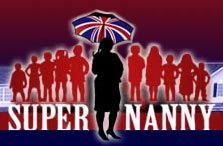 The family featured in this particular episode had a 4 year-old daughter and an 8 year-old son.
The little girl tyrannized her wimpy mom, while remaining the apple of her father’s (blind) eye. Like a black hole,
she sucked up all available parental energy, leaving her sweet, sensitive brother virtually ignored by Mom and Dad. The
remedy? Supernanny helped hapless Mom regain her leadership role with her daughter and prescribed regular father-son bonding
time.
The family featured in this particular episode had a 4 year-old daughter and an 8 year-old son.
The little girl tyrannized her wimpy mom, while remaining the apple of her father’s (blind) eye. Like a black hole,
she sucked up all available parental energy, leaving her sweet, sensitive brother virtually ignored by Mom and Dad. The
remedy? Supernanny helped hapless Mom regain her leadership role with her daughter and prescribed regular father-son bonding
time.
In short order Mom dropped her doormat demeanor and took charge (patiently and lovingly, of course). Dad was another story. Unfortunately, the first time he sat down with his son to help with homework, he picked on the boy for not making his “a’s” correctly. (I’m serious!) The kid tried and tried to please, but Dad continued berating him, even snatching away the homework paper in disgust and balling it up. When the penmanship critique didn’t let up, the little boy began whimpering like a whipped dog for which Dad got in his face and shouted, “You know what? You’re being a whiny little brat. Just a whiny little brat!” That did it for me. I started yelling at the TV (My husband had to restrain me). I try not to be judgmental, but when I see an adult abusing a child I lose all pretense of civility. Thankfully Supernanny was as outraged as I was. By showing the dad video footage of his “quality time” interaction with his son, he actually woke up to what he was doing and began making some much needed changes (which is, of course, the best part of the show).
At the episode’s conclusion, I was struck simultaneously by three realizations: a) how much we love our kids, b) how unconscious we can be about what we say to them, and c) how vulnerable they are to our criticism (and yes, it’s also true for teens, despite their charade of being too cool to be affected by anything).
Since we’ve all been on the receiving end of hurtful parental comments why do we belittle and insult our kids? Here are a few of justifications that come to mind:
- I was just so angry, worried, frustrated, etc., that I wasn’t thinking clearly.
- It was something my mother/father used to say to me and even though I hated hearing it from them, it just popped out of my mouth.
- It’s just an expression! My son/daughter knows I don’t mean it.
- It’s true! (S)he does act like a _____ sometimes.
- This is a tough world. If you’re not aware of your faults how can you grow up and become responsible?
- (S)he might as well hear it from me rather than from someone who doesn’t really care.
In friendship,
Annie











